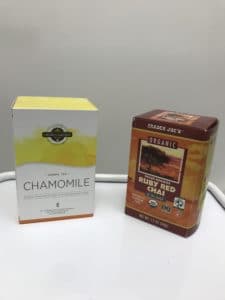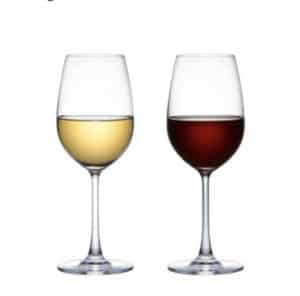By Elena Chistokhoma RDH
Every five years, the U.S. The Department of Agriculture issues new federal dietary guidelines, which help Americans in their choice of a healthy diet and lifestyle. If we
follow these guidelines, it will reduce the risk of heart disease, diabetes, certain cancers. But how do these “healthy” food and drinks effect our dental health?
American Dental Association (ADA) has warned us in the past that many popular sugary sodas are nearly as corrosive to dental enamel as battery acid. What many people are unaware of is that certain foods and drinks that people consider to be “healthy” can also have an erosive effect on teeth. Let’s take a closer look at the effects of bottled water, herbal tea, sports drinks, and wine on our dental health.
1. Bottled water
According to the researchers, there are two problems with bottled waters, which are the minerals content and carbonation.The first is that bottled waters come from a variety of
sources, which differ in their mineral’s compositions. Magnesium and sulfur are the most damaging chemicals. This contrasts with waters that contain a high concentrations of calcium and are least likely to erode teeth. The second factor is carbonation. Sparkling waters are more acidic than still waters, and they tend to be erosive. So when you choose a bottle of water check the label closely.
2. Herbal tea

The researchers found that the damage caused by herbal teas is significantly higher than from traditional teas. The worst offenders products containing blackcurrant, ginseng, vanilla, raspberry, cranberry, and elderflower. The researchers suggest that traditional black, green and chamomile tea are not erosive, and that most herbal teas containing fruits, and fruits tend to be acidic. If your favorite drink is tea, choose it wisely.
3. Sports drinks are also under attack

Athletes consume sports drinks because they increase hydration and improve performance. However, researchers found that those drinks can be more destructive than colas. Acids and sugar are added to sports drinks to improve their taste and extend their shelf-life. If you drink several bottles of sports drinks a day it can lead to dry mouth, because the body doesn’t produce enough saliva to neutralize the acidity of the drinks. Also organic acids in sports drinks are potentially very corrosive to dental enamel because they break down calcium in teeth. The researchers suggest to limit intake of sports drinks and only drink it when it is absolutely necessary.
4. Wine

USDA suggested that a small amount of wine can be added to an adult’s diet to help prevent coronary heart disease. However, besides it’s antioxidants, wine is acidic.White wine is
slightly more acidic (pH 3,2),than red wine (pH 3,5). Wine derives its acidity mostly from tartaric, malic, and citric acids. These acids demineralize the teeth and soften the enamel.
As dental professionals, we want our patients to be aware of the erosive effects of “healthy” beverages. Limit intake of sports drinks and fruit-flavored herbal teas, do not hold wine
too long in the mouth, find out the mineral content of bottled water before drinking. In addition, don’t brush immediately after drinking acidic beverages. Brushing can wash away the tooth enamel softened by acids, so it is recommended to rinse with water and wait for 30 minutes before brushing after consuming acidic beverages.The 2015-2020 Dietary Guidelines for Americans recommend that well mineral balanced water, low-fat milk and 100 percent juice should be the primary beverages consumed.
Call 212.246.8700 to find out more information or click here to schedule an appointment with Gallery57Dental.

